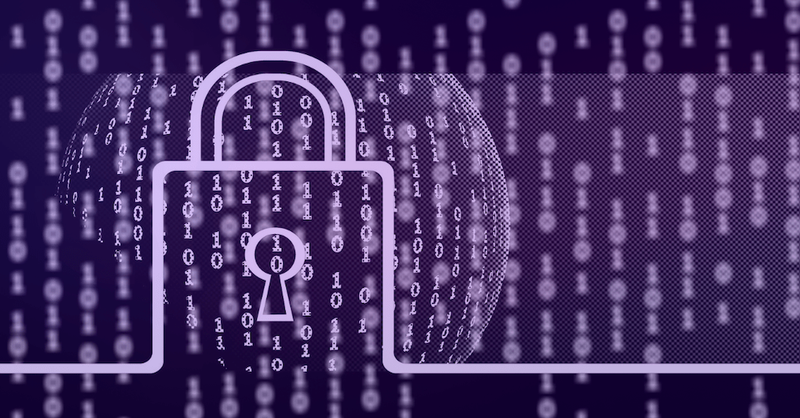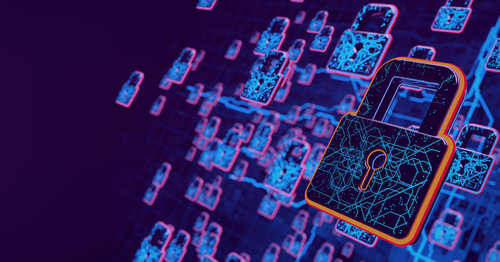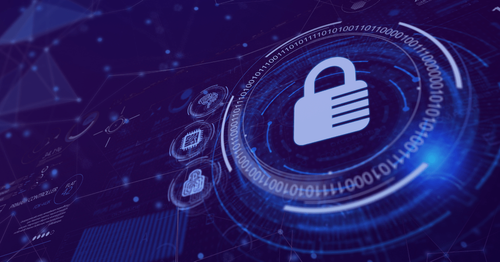Cryptography: what is it and why is it essential for the security of your business
"Crypto" means hidden or secret. Learn more about how Cryptography works and its usage as a business enabler.

There is no way to talk about cryptography without mentioning the origin of this word, which comes from Greek. The prefix "crypto" means hidden or secret, and "graphy" means "writing." In other words, cryptography is essentially writing in an unintelligible way or even in a secret way. When it comes to data security, encryption is the process of converting information into unintelligible text so that it can be stored or transmitted securely.
An everyday example is the text messages we send through mobile apps like WhatsApp. In the application itself, users can usually read a statement saying the app offers "end-to-end encryption." In practice, this means that when you send a message, it is encrypted - scrambled, converted into incomprehensible information. The message leaves its end encrypted and, when it reaches the recipient, it is "unscrambled." So, only at the other end does the information make sense and is readable again. This process prevents a third person not involved in these ends from having access to what was sent.
And it works: not even the company that offers the messaging service can access what is encrypted. Not even if the FBI requires them to. In 2016, when WhatsApp, then recently purchased by Facebook, "turned on" end-to-end encryption in its app, the world of technology and security erupted in debate. On the one hand, the company offered security and privacy to its users. On the other hand, it effectively ruled out any attempt - even by the FBI through court orders - to gain access to more than a billion devices.
Half a decade of controversy later, we know who won: privacy. Today, encryption is an essential security requirement for any application and any company that wants to protect its information.
How does it work?
The concept of encryption is not new. Writing in code, for example, is a way of encrypting texts. But as technology progressed and computers began to create codes and keys to decipher these codes, encryption methods became increasingly complex.
Today, cryptography uses algorithms and the very latest in math and computer science. Despite all this complexity, the basic idea remains the same: transform information into something that only those who have the correct "key" will be able to decipher. Of course, keys can work differently, being symmetric (both ends share the same) or public (with a shared key, but a private one).
In practice, encryption protects your data. This data could be the photo of Fido, the pup, that you texted to the family group. But they can also be the entire cloud backup of your company's and your customers' most important documents. Therefore, encryption is one of the most vital tools to ensure the security of a company. It guarantees that, even if there is an attack on your servers and computers, or even if by human error some information leaks, this information will not be readable by third parties.
In times of "cyber terrorism," with groups of hackers seeking confidential company information to extort companies, encryption is one of the first absolutely indispensable barriers to preventing safety issues. Having a secure system is an investment that pays for itself in quite a short time. Cybercrime is estimated to cost about $10.5 trillion annually through 2025 for businesses worldwide.
With the pandemic and companies adhering to work-from-home schemes, this type of crime has become even more common. In addition, small and medium-sized businesses are even more at risk. According to data from an Accenture study, 43% of cyberattacks have small businesses in their sights, but only 14% of these companies are prepared to defend themselves against these actions. Encryption is undoubtedly one of the first and foremost lines of data defense today.
More from our blog
ISO 27001, GDPR Compliance and Encryption: What you need to Know
A Guide to Understanding the Relationship between Encryption, Compliance, and Security Requirements
What is Confidential Computing and What are its Limitations
Vaultree's Fully Functional Data-in-Use Encryption Solution vs Confidential Computing: A Revolutionary Approach to Data Security
Tokenisation vs Encryption: which one is better?
When it comes to data protection, be aware of the most functional technology already available


